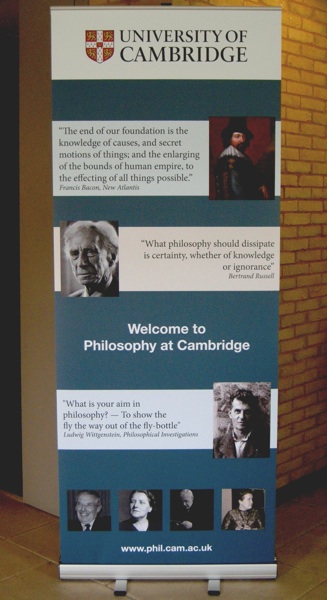Symposium II: Moral Testimony - Hallvard Lillehammer and Roger Crisp
Duration: 42 mins 19 secs
Share this media item:
Embed this media item:
Embed this media item:
About this item

| Description: | Recording of Symposium II: Moral Testimony given by Hallvard Lillehammer (Birkbeck) and Roger Crisp (Oxford) on Saturday 12th July 2014. |
|---|
| Created: | 2014-08-18 10:45 |
|---|---|
| Collection: | Joint Session 2014 |
| Publisher: | University of Cambridge |
| Copyright: | Faculty of Philosophy |
| Language: | eng (English) |
| Distribution: |
World
|
| Explicit content: | No |
| Abstract: | Hallvard Lillehammer (Birkbeck):
Moral Testimony, Moral Virtue, and the Value of Autonomy According to some, taking moral testimony is a potentially decent way to exercise one’s moral agency. According to others, it amounts to a failure to live up to minimal standards of moral worth. What’s the issue? Is it conceptual or empirical? Is it epistemological or moral? Is there a ‘puzzle’ of moral testimony; or are there many, or none? I argue that there is no distinctive puzzle of moral testimony. The question of its legitimacy is as much a moral or political as an epistemological question. Its answer is as much a matter of contingent empirical fact as a matter of a priori necessity. In the background is a mixture of normative and descriptive issues including the value of autonomy, the nature of legitimate authority, and who to trust. Roger Crisp (Oxford): Moral Testimony Pessimism: A Defence This paper defends moral testimony pessimism, the view that there is something morally or epistemically regrettable about relying on the moral testimony of others, against several arguments in Lillehammer (2013). One central such argument is that reliance on testimony is inconsistent with the exercise of true practical wisdom. Lillehammer doubts whether such reliance is always objectionable, but it is important to note that moral testimony pessimism is best understood as a view about the pro tanto, rather than the overall, badness of relying on testimony. One must also be clear about what counts as genuine moral testimony: there will be morally charged occasions when a virtuous person will properly rely on the views of others. It can also plausibly be argued that relying on moral testimony may constitute a lack of full autonomy. After discussing some remaining issues concerning the definition of moral testimony, a possible analogy between lying and relying on testimony, and the implications of untrustworthiness for the truth of moral testimony pessimism, the paper ends with a return to the case against relying on moral testimony, grounded on a conception of the role of knowledge and understanding in virtue. |
|---|---|

